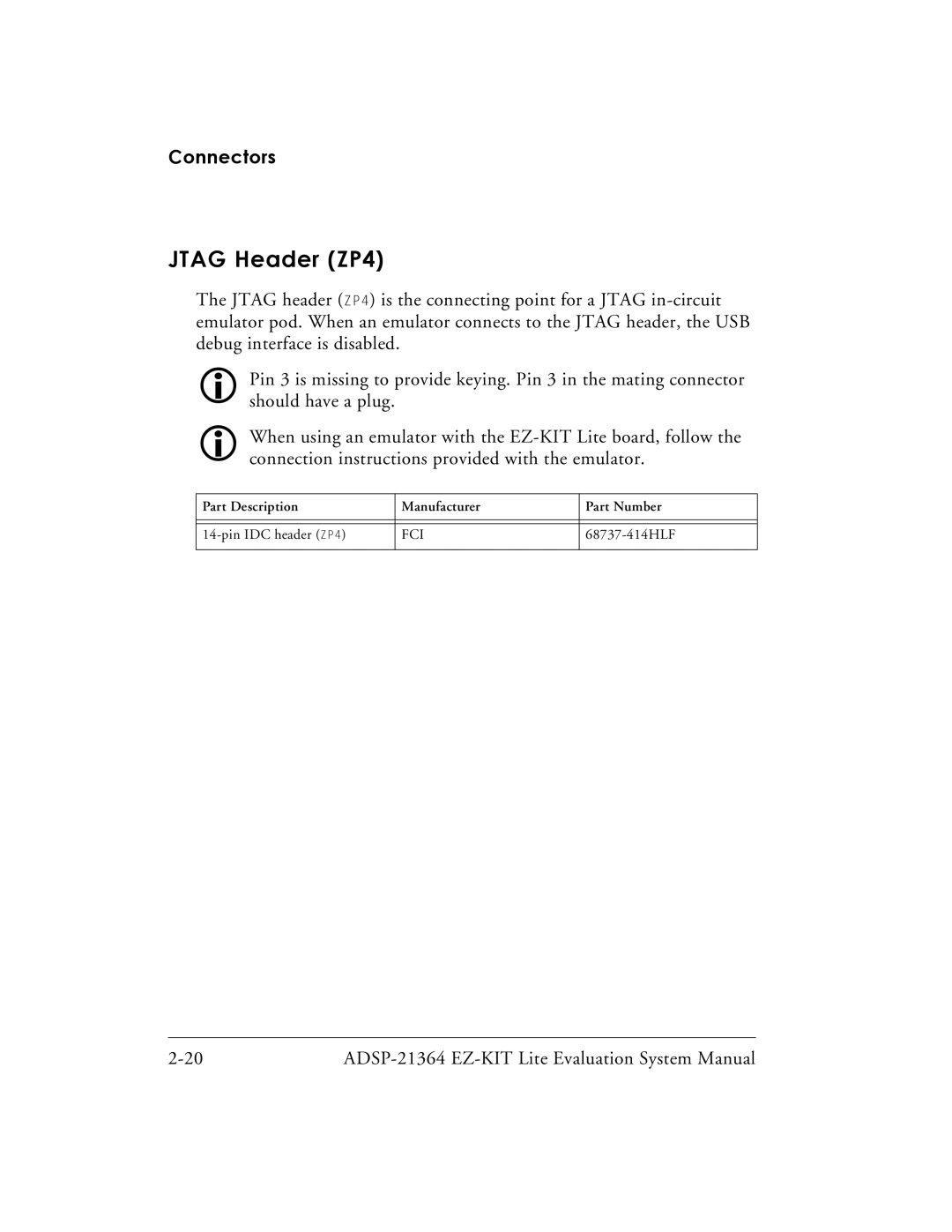ADSP-21364 specifications
The Analog Devices ADSP-21364 is a high-performance digital signal processor (DSP) specifically designed for demanding applications in audio, industrial, and communications sectors. It is well-regarded for its powerful processing capabilities, extensive connectivity options, and energy efficiency, making it an ideal choice for complex digital signal processing tasks.One of the standout features of the ADSP-21364 is its dual Harvard architecture, which allows for simultaneous access to program and data memory. This capability significantly improves performance by reducing bottlenecks, enabling faster execution of algorithms. The processor boasts a clock speed of up to 300 MHz, ensuring it can handle a wide range of real-time signal processing tasks.
The ADSP-21364 is equipped with a rich set of on-chip memory resources, including 64KB of program RAM and 64KB of data RAM. This substantial memory allocation enables the storage of intricate algorithms and large datasets, ensuring that high-performance applications can be executed without the need for external memory, thus reducing latency and power consumption.
Another notable feature of this DSP is its advanced multiprocessing capabilities. The processor includes six processing engines, allowing for parallel processing of multiple tasks. This architecture is particularly beneficial for applications that require simultaneous processing of audio signals, such as digital mixing or effects processing, enhancing the overall throughput.
In terms of connectivity, the ADSP-21364 is equipped with a wide range of I/O options, including serial ports, parallel ports, and a high-speed synchronous port. This versatility facilitates seamless integration with other system components, making the processor an excellent choice for embedded systems that rely on external data sources.
The ADSP-21364 also supports various industry-standard digital audio interfaces, such as I2S and TDM, enabling straightforward interfacing with audio codecs and other digital audio devices. Moreover, it features built-in hardware accelerators for efficient filtering, Fast Fourier Transform (FFT), and interpolation tasks, thereby enhancing its ability to handle complex audio signal processing.
On the power consumption front, the ADSP-21364 is designed with energy efficiency in mind. Its architecture allows for low-power operation modes, which are crucial in battery-powered applications where energy conservation is a priority.
In conclusion, the Analog Devices ADSP-21364 DSP is a robust solution for high-performance digital signal processing needs. With its dual Harvard architecture, extensive memory resources, advanced multiprocessing capabilities, versatile connectivity options, and energy-efficient design, it stands out as a premier choice for a variety of applications in the fields of audio processing, telecommunications, and industrial automation.
